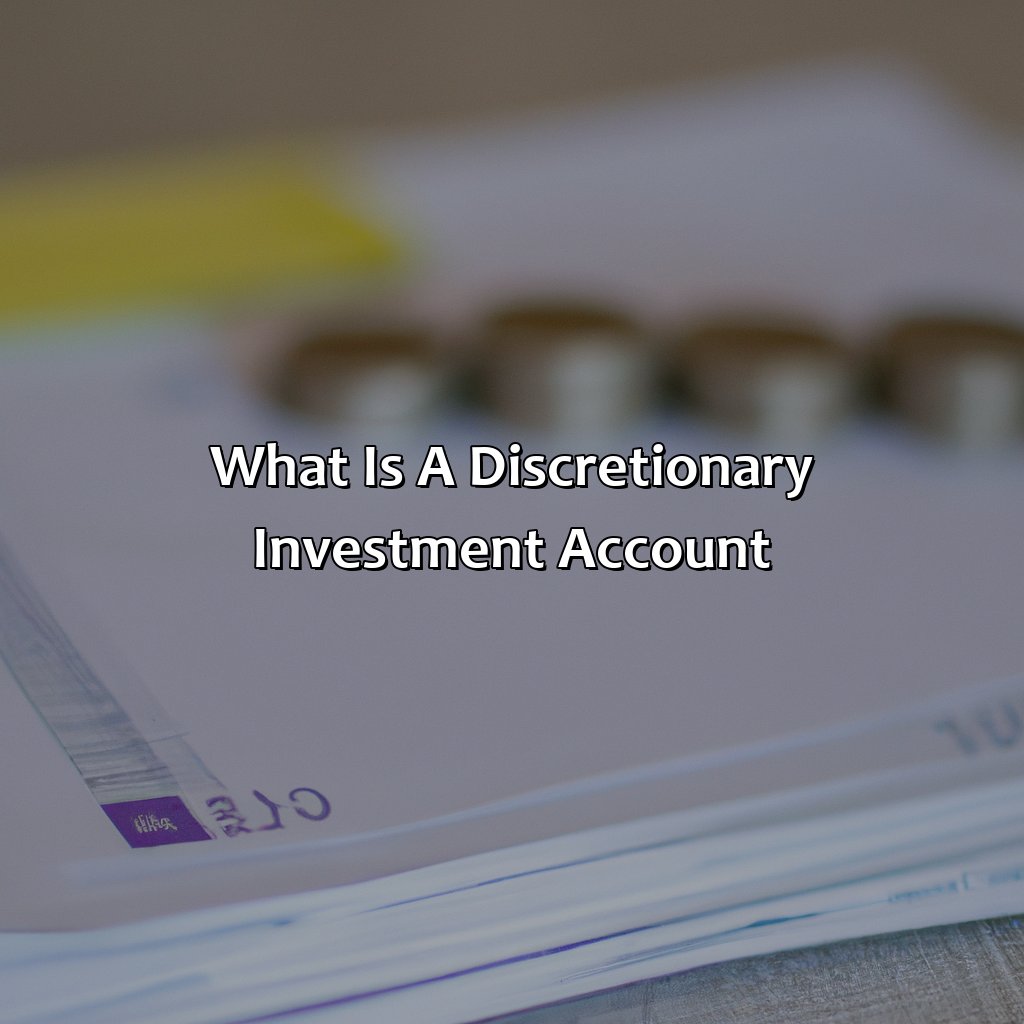What Is A Discretionary Investment Account?
Key Takeaways:
- Discretionary investment accounts are managed by professional portfolio managers who make investment decisions on behalf of the account holder. This allows for customized investment strategies and time-saving benefits.
- There are two main types of discretionary investment accounts: individual and corporate. Individual accounts are managed for individual investors while corporate accounts are managed for corporations or institutional investors.
- While discretionary investment accounts offer advantages, such as professional management and customized strategies, there are also risks and considerations to be aware of, including the potential for losses and lack of control, as well as fees and charges.
Are you looking for a new, secure investment option? A discretionary investment account is the perfect solution for maximizing your investments and achieving financial freedom. You’ll learn all the necessary details in this comprehensive guide.
Overview of Discretionary Investment Account
A discretionary investment account allows a financial advisor to make investment decisions without the investor’s prior approval. The investor grants authority to the advisor who tailors the portfolio to their needs, risk profile, and investment goals. The advisor has greater flexibility to react to market changes, shifts in economic conditions, and opportunities. The objective of this type of account is to increase returns while managing risk appropriately.
The advisor has the responsibility of selecting, managing, and monitoring financial instruments, such as stocks, bonds, mutual funds, and ETFs, among others. They have the discretion to make asset allocation decisions, timing of purchases and sales, and choosing investment vehicles. The investor benefits from having a professional manage their portfolio and having more time to focus on other activities.
One of the advantages of discretionary investment accounts is that they are more flexible than advisory services where the advisor needs to obtain the client’s approval for each investment decision, reducing inefficiencies and administrative efforts. Additionally, the lack of client involvement can reduce emotions involved in investing and lead to more disciplined and consistent investment decisions.
In summary, a discretionary investment account gives a financial advisor the power to make investment decisions on behalf of the investor. This arrangement offers more flexibility, better risk management, and professional management of the portfolio. Investors can benefit from the higher returns and reduced administrative burden, and having a professional manage their portfolio.

Image credits: retiregenz.com by Joel Arnold
Definition of Discretionary Investment Account
A Discretionary Investment Account is a type of account where an investment manager has the authority to make investment decisions on behalf of the account holder without prior consultation. The manager makes investment decisions based on the account holder’s investment goals and investment policy statement. The account holder has no say in the investment decisions made by the manager.
This type of account is typically used by high net worth individuals or institutional investors who do not have the time or expertise to manage their investments themselves. The account holder entrusts the investment manager with the responsibility of making investment decisions that align with their investment objectives.
It’s worth noting that an investment manager has a fiduciary duty to act in the best interest of the account holder. The investment manager must always act in good faith and disclose any conflicts of interest that may arise.
Interestingly, Discretionary Investment Accounts have been used for many years in the financial industry. They were first introduced in the late 1800s when wealthy families would entrust their investment decisions to their trusted advisors. Today, these accounts continue to be a popular investment vehicle for those who value professional investment management.
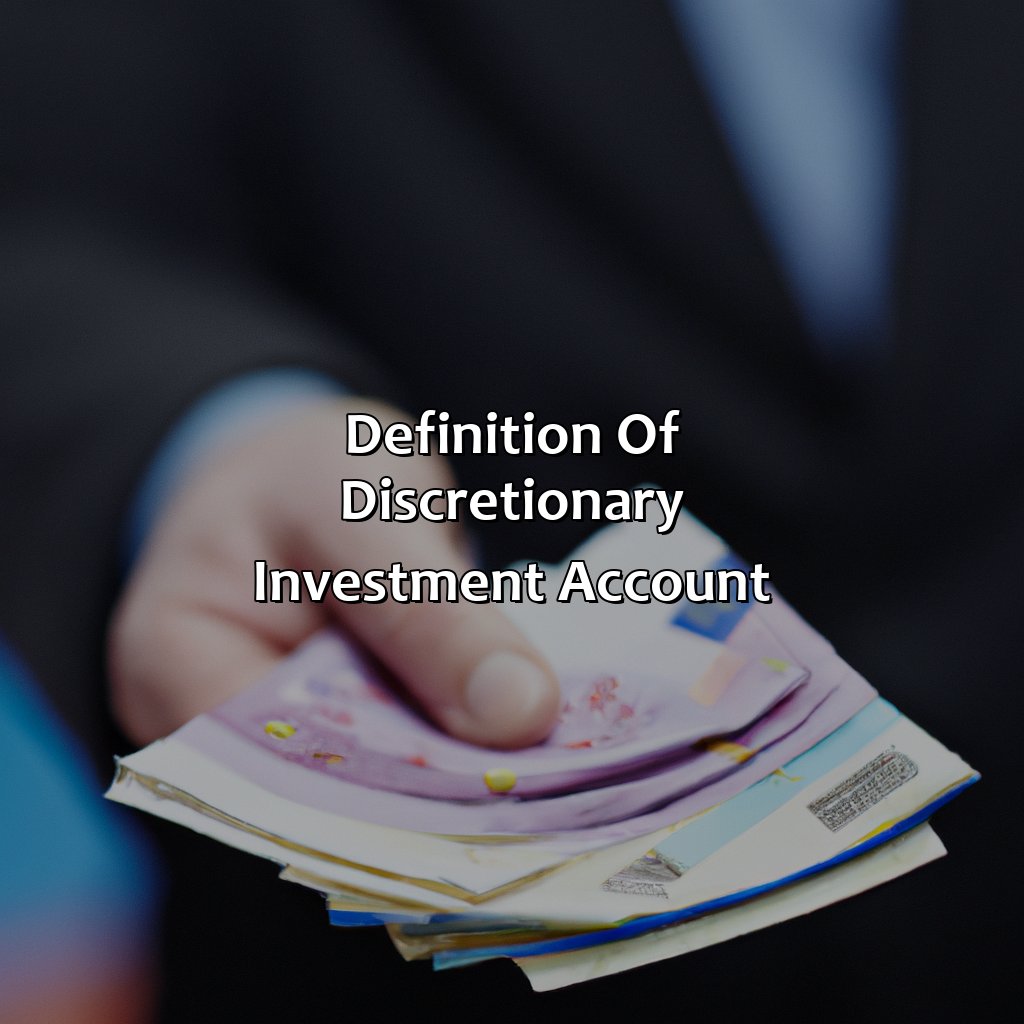
Image credits: retiregenz.com by Harry Washington
Types of Discretionary Investment Account
Discretionary Investment Accounts allow investors to give full authority for investment decisions to their brokers or investment managers. This allows for a more hands-off approach, where the investor does not need to be involved in every decision.
The following table lists different types of Discretionary Investment Accounts:
| Type of Account | Description |
|---|---|
| Separately Managed Accounts | Unique portfolios managed by investment managers |
| Pooled Funds | Money from various investors pooled together to create a large investment fund |
| Unified Managed Accounts | Multiple investments combined into one account, managed by a single investment manager |
| Wrap Accounts | Commission-based accounts that include a bundle of services, such as investment selection and advice |
It is important to consider the fees and expenses associated with a Discretionary Investment Account and to ensure it aligns with your investment goals and risk tolerance. Some accounts may have a minimum investment requirement or restrict certain types of investments.
Pro Tip: Regularly review your Discretionary Investment Account and communicate any changes in your investment goals or preferences with your investment manager to ensure your portfolio remains aligned with your objectives.
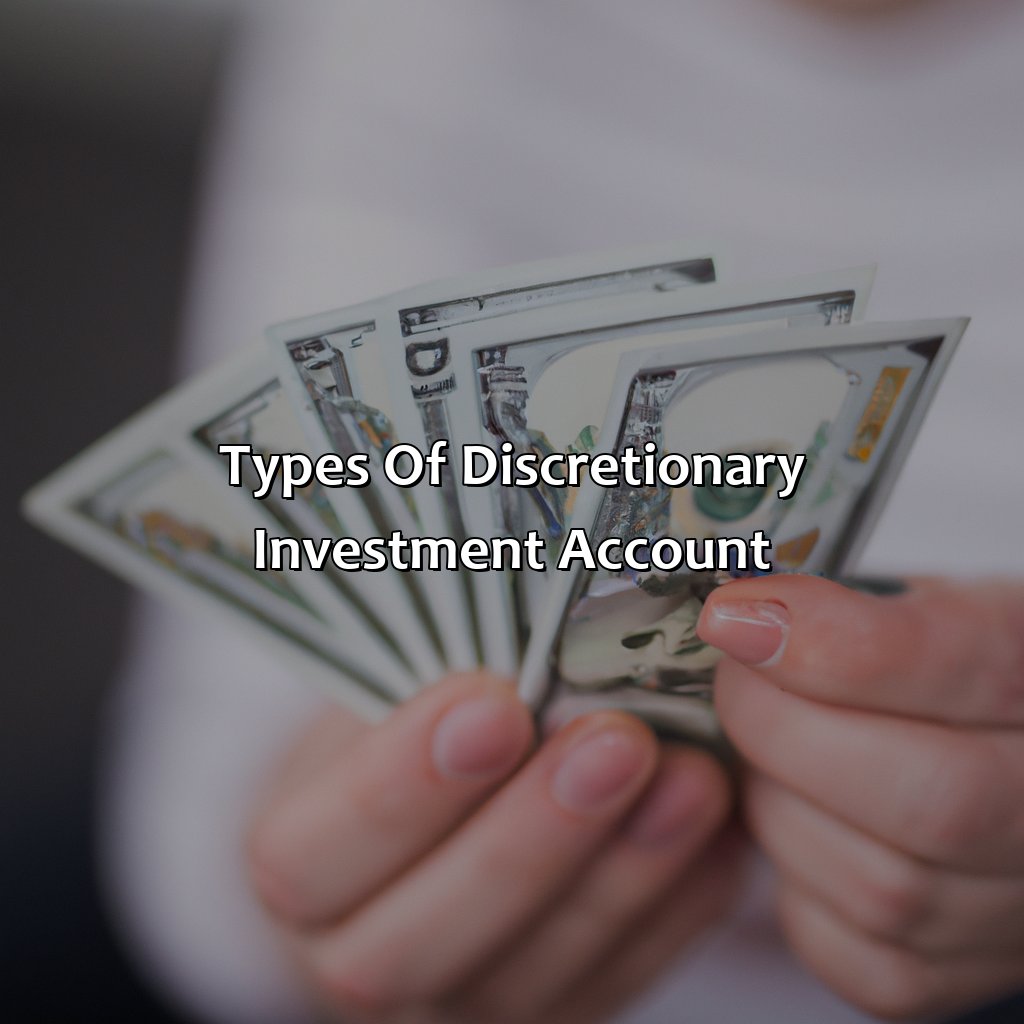
Image credits: retiregenz.com by Harry Woodhock
Advantages of Discretionary Investment Account
Discretionary investment accounts offer several advantages to investors. Firstly, they provide access to a professional fund manager who has a wealth of knowledge and experience. Secondly, they offer diversification through the pooling of funds from multiple investors, which can lead to higher returns. Thirdly, they allow for a tailored investment strategy that aligns with the investor’s goals and risk tolerance. Fourthly, they can offer tax advantages by allowing the fund manager to make decisions based on the investor’s tax situation. Fifthly, they offer convenience as all investment decisions are made by the fund manager, saving the investor significant time. Lastly, they offer the potential for higher returns as the fund manager can take advantage of market conditions in a more timely and effective manner.
In addition to these advantages, discretionary investment accounts also offer flexibility in terms of contribution and withdrawal limits, allowing investors to adjust their investments as their financial circumstances change.
It is worth noting that according to a study by Vanguard, investors who use advisors potentially earn up to 3% higher returns over time compared to those who do not use advisors.
Source: Vanguard study on how advisors add value to investors.
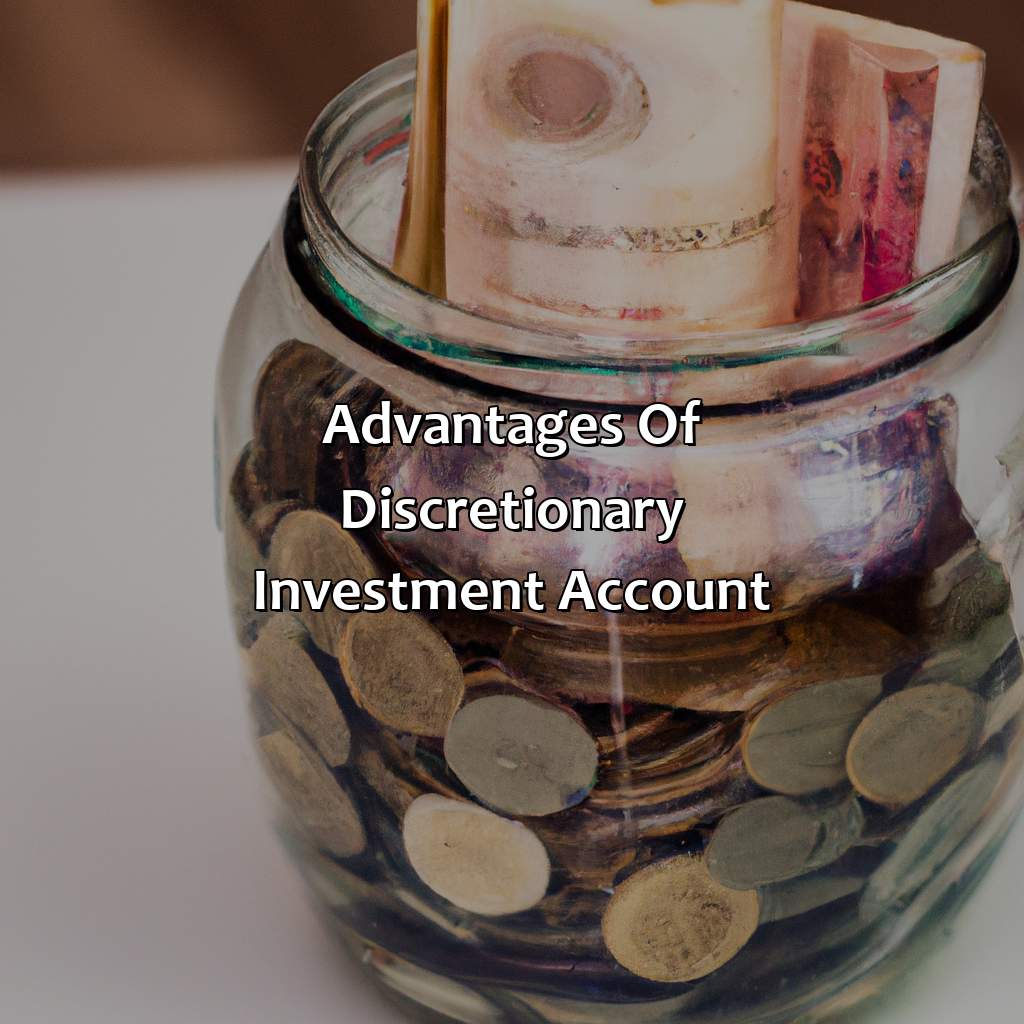
Image credits: retiregenz.com by Adam Arnold
Risks and Considerations of Discretionary Investment Account
Discretionary Investment Accounts involve certain risks and considerations that must be taken into account by investors.
The following are some of the risks and considerations associated with discretionary investment accounts:
- Investment objectives may not be aligned with those of the investor.
- Reliance on the investment manager’s decisions.
- Limited control over investments.
- Higher costs compared to non-discretionary accounts.
- Possible conflicts of interest.
- No guarantees of positive returns.
In addition to the aforementioned points, investing in a discretionary account may also result in an investor taking on more risk than they initially intended, as the investment manager has the power to make trades without prior approval.
According to a study by Morningstar, only one-third of investment managers outperformed their respective benchmarks in 2020.
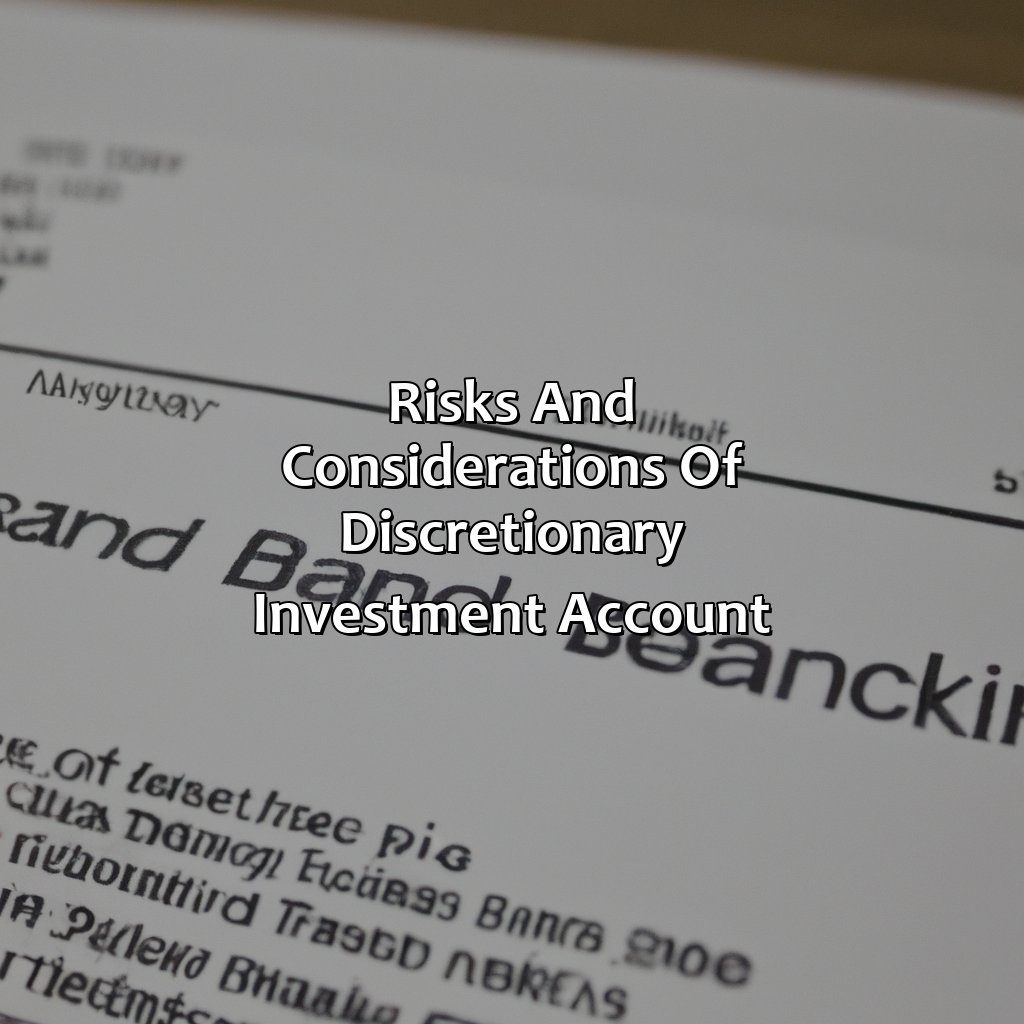
Image credits: retiregenz.com by Adam Washington
How to Open a Discretionary Investment Account
Opening a Discretionary Investment Account: A Professional Guide
A discretionary investment account provides great flexibility and control over your investments. Here is a 6-step guide to opening one:
- Choose a reputable financial institution and research their discretionary investment account options.
- Complete the required paperwork, which includes the provision of personal and financial information.
- Conduct a thorough review of the terms and conditions of the account before signing the contract.
- Make an initial deposit to your discretionary investment account.
- Select your investment manager and define your investment strategy.
- Authorize your investment manager to buy and sell investments as required.
It is worth noting that discretionary accounts require a higher level of investment expertise compared to non-discretionary accounts. Ensure you understand the risks involved and ask questions if unsure.
If you are looking for a way to get more involved with your investments while ensuring they remain professionally managed, a discretionary investment account is worth considering. Don’t miss out on the opportunity to take control of your investments and watch them grow.
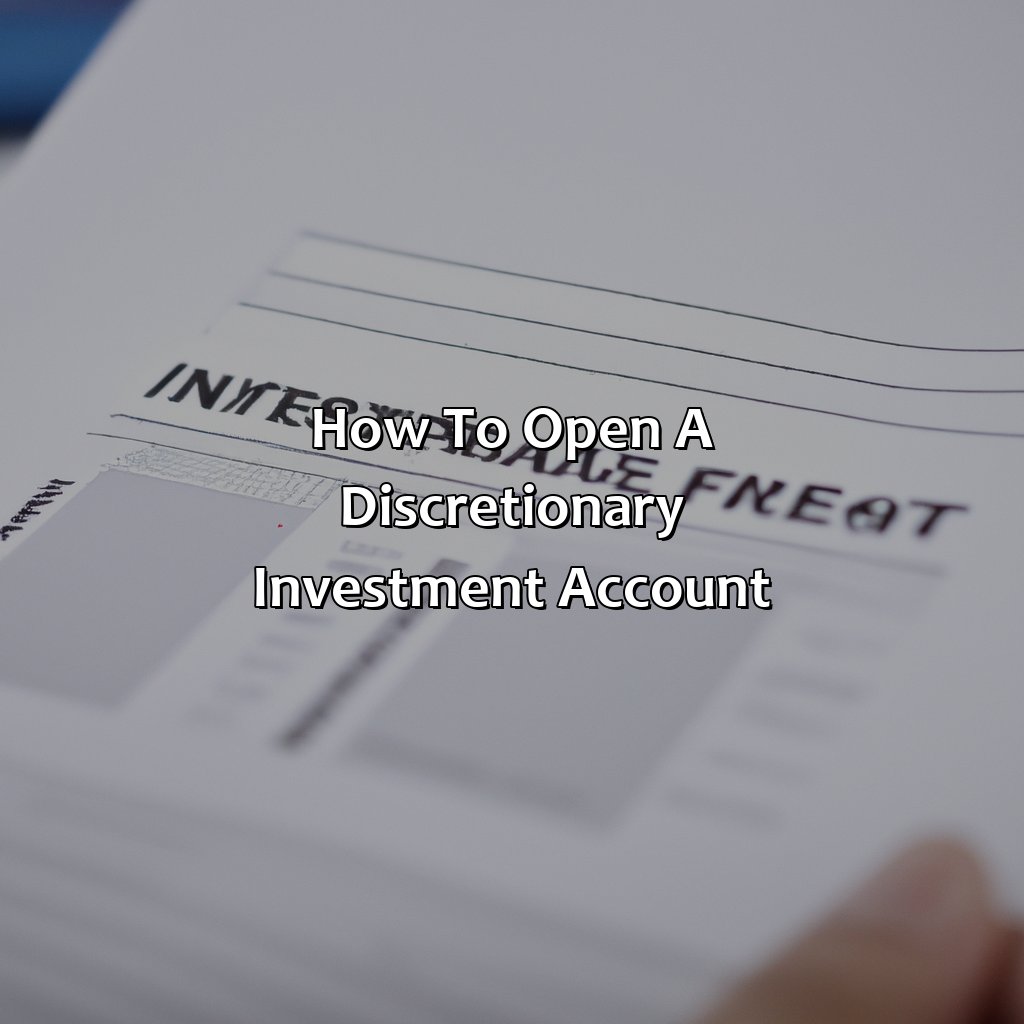
Image credits: retiregenz.com by Harry Duncun
Five Facts About What Is a Discretionary Investment Account:
- ✅ A discretionary investment account is a type of investment account where a financial advisor or portfolio manager has the authority to make investment decisions on behalf of the account holder. (Source: Investopedia)
- ✅ A discretionary investment account allows for more active management of investments and can potentially offer higher returns, but also comes with higher fees. (Source: The Balance)
- ✅ The account holder may set investment objectives and risk tolerance levels for the account, but ultimately the investment decisions are made by the advisor or manager. (Source: The Motley Fool)
- ✅ Discretionary investment accounts are typically used by high net worth individuals and institutional investors. (Source: Forbes)
- ✅ Unlike a non-discretionary account where the account holder makes all investment decisions, a discretionary investment account frees the account holder from having to closely monitor and manage their investments. (Source: U.S. Securities and Exchange Commission)
FAQs about What Is A Discretionary Investment Account?
What is a discretionary investment account?
A discretionary investment account is a type of investment account in which the account holder gives their investment advisor or manager the authority to make investment decisions on their behalf. This means that the investment advisor has the power to make trades and manage the account without seeking approval from the account holder for every decision made.
How is a discretionary investment account different from a non-discretionary investment account?
A non-discretionary investment account is one for which the account holder retains control over investment decisions. In a non-discretionary account, the investment advisor may make recommendations, but the account holder must ultimately approve or reject each individual trade or investment decision.
What are the benefits of a discretionary investment account?
One of the main benefits of a discretionary investment account is that it allows the investment advisor to act more quickly on investment opportunities, without the need to seek approval for each trade. This can potentially result in greater returns on investment. Additionally, a discretionary account can allow the account holder to delegate investment decisions to a professional with greater expertise and experience.
What are the risks of a discretionary investment account?
The main risk of a discretionary investment account is that the investment advisor may make decisions that are inconsistent with the account holder’s goals or risk tolerance. In the event of losses, the account holder may be unable to hold the investment advisor liable, as they delegated decision-making power to the advisor.
What factors should be considered when selecting an investment advisor for a discretionary account?
When selecting an investment advisor for a discretionary investment account, it is important to consider factors such as the advisor’s experience and track record, their investment philosophy and approach, the fees and charges associated with their services, and their reputation and client reviews.
How can I monitor my discretionary investment account?
The investment advisor for a discretionary account is required to provide regular reports and updates on the account’s performance and holdings. However, it is important for the account holder to maintain ongoing communication with the advisor, and to regularly review and monitor the account’s activity and performance to ensure it aligns with their goals and expectations.
